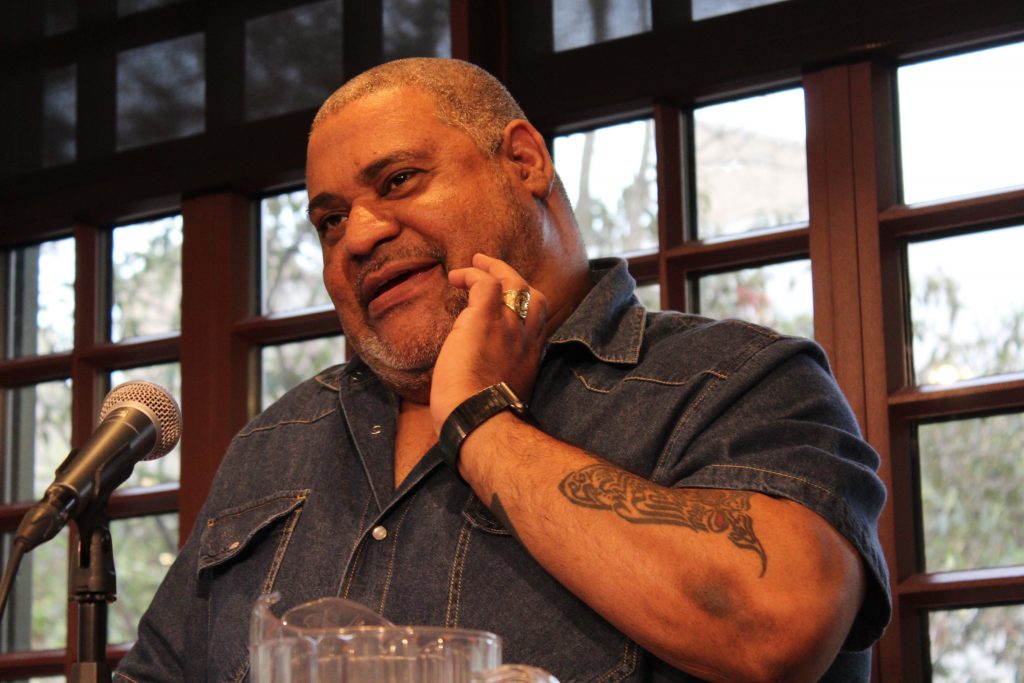Remaking Ourselves Through the Act of Writing

For weeks now, I’ve been pondering an idea planted in me by Nigerian-American author Chris Abani, who gave a craft talk about “the many gifts of loss.” His writing, and his teaching, are soulful and complex; I will try to summarize part of what he shared, though any inaccuracies are mine.
In short, he described that we all have received narratives in this life–societal, cultural, etc. And as writers, we have something in us that seems so urgent that we must intervene in the world and say it on the page. The only way to get to the heart of that urgent message is to lose something … to give up a core belief that’s part of our received narratives. In other words, we must re-make ourselves through the act of writing, and in so doing, lose one thing in order to ascertain a truer truth.
The tension between these two poles–that of our received narratives and the truer truth–is navigated by the structure and style of our writing itself.
This has had me thinking in circles (which I actually enjoy): What is it that I have to lose in order to say what must be said? Have I written deeply enough into the page (not just across the page) to tap into that kind of loss? How can I be sure? And if I haven’t (spoiler alert: I haven’t yet … at least not for my current novel), what core belief(s) do I need to give up, in order to ascertain that truer truth?
The only way to discover that urgent message is to write; and the only place to write from is that place of urgency.
One way I’ve been digging into this idea is by creating prompts based on the prose-poem explorations that Abani pointed me toward in Bhanu Kapil’s The Vertical Interrogation of Strangers. To read this book is to surrender to blended truths; to the antithesis of tidy; to a truer truth for Kapil, the women she interviewed, and the woman she is now. To freewrite formlessly from this book, borrowing a phrase here and a sentence there, then springboarding into my own pasts (both real and imagined) is to feel flow on the page again.
Inside the container of a few lines, as long as I know I can write into rather than across the page, anything seems possible. I realize this sounds very abstract, but it’s quite literal conceptually (if you will). Writing is not a sideways activity. It is an excavation. A gutting. And believe it or not–we can have fun doing it!
Whether or not you identify as a writer, if you’re reading this blogpost, I know you’re a deep thinker, a lover of language, and a kindred spirit. So–writer or otherwise–please write to me or comment below in response to the following questions:
- What core belief might you have to let go of, in order to say whatever it is you most long to say in life?
- Have you given yourself the chance to express this? If so, when or how? If not, why not?
- What does writing into the page (versus across it), mean to you?
- If you could let go of one hesitation as a writer during the act of writing, what would that be? And how would you be different, having let that go?
Are you on my newsletter list? When you sign up, you’ll get my monthly questions and you’ll also receive the 5 S’s Applied to Story downloadable PDF. I send emails approximately every month with mini craft essays, special notices, early-bird registrations, and announcements for subscribers only. No spam, ever; and your email address is never shared. Sign up here.


I love this! Thank you 🙂